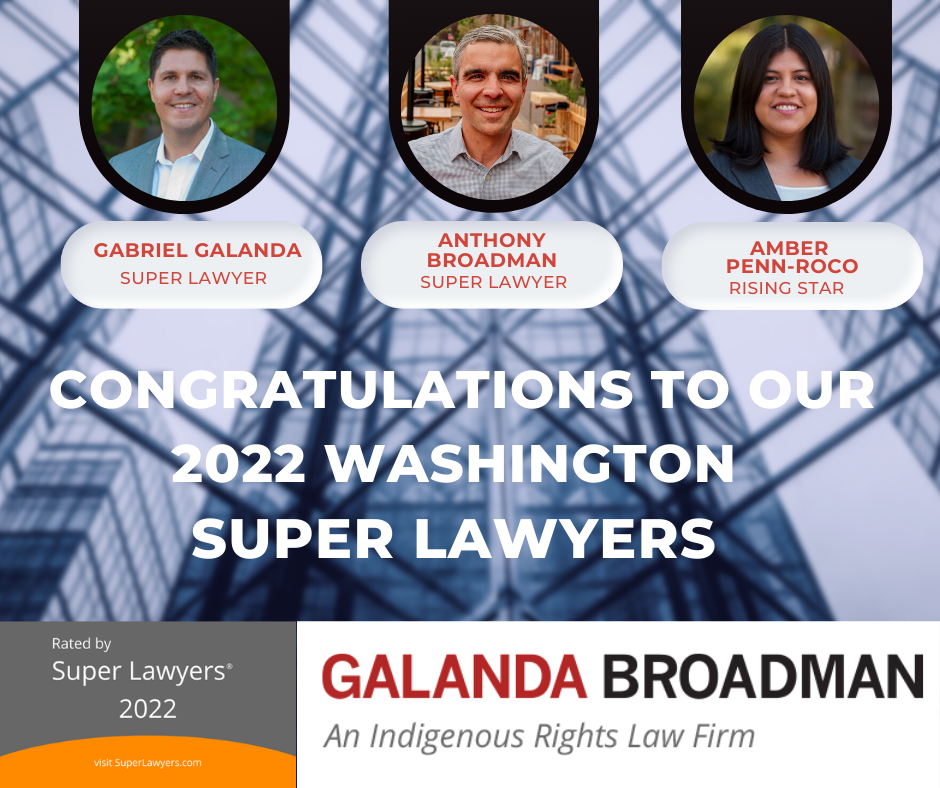On Saturday morning, May 14, Team Galanda Broadman will compete in Seattle’s Beat the Bridge Race to bring awareness to the need for greater Indigenous diabetes research.
Indigenous Americans are twice as likely as Caucasians to have diabetes. For two out of three Indigenous Americans with kidney failure, diabetes is the cause.
The race is a fundraiser for JDRF, a leading global organization that funds diabetes research. The event consists of an 8K run and wheelchair race, a 3-mile walk, and a 1-mile fun run. Team Galanda Broadman members of all ages will participate in all three events.
The event got its name “Beat the Bridge” because the course travels over Seattle’s University Bridge, which is raised during the race. Participants try to cross the bridge before it is raised.
Please consider donating to JDRF in support of Team Galanda Broadman’s efforts to beat the bridge and bring awareness to Indigenous diabetes research needs.
You can donate here.
















